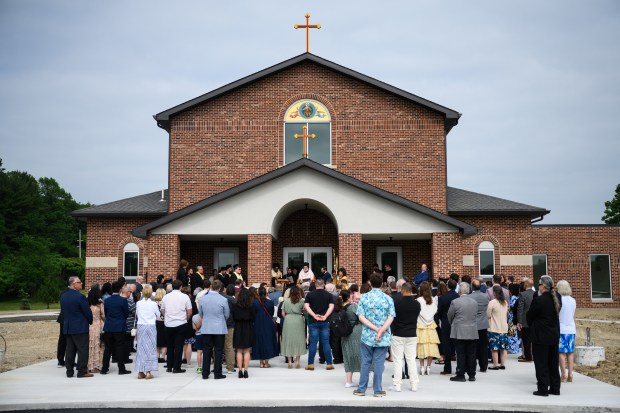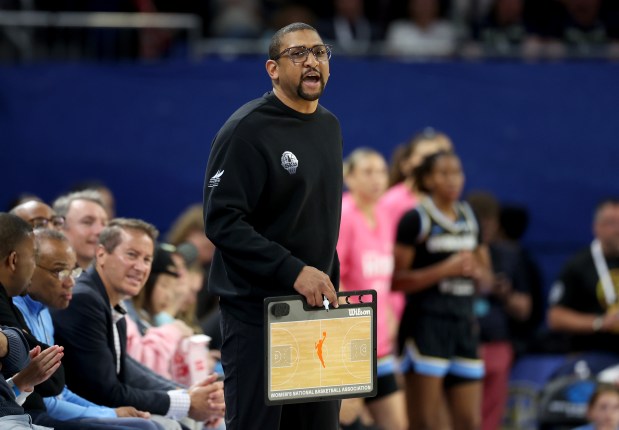While airlines tried to restore service, Chicago’s airports were still feeling the residual effects Saturday of a global technology outage that left passengers across the country scrambling during the busy midsummer travel season.
O’Hare International Airport had more than 120 flights canceled by 3:45 p.m., and nearly 330 flights delayed, according to flight tracking firm FlightAware.
Chicago-based United Airlines, one of two main carriers at O’Hare, said while its technology systems had been restored and reliability was improving, cancellations and delays were expected to continue throughout the weekend. The airline resumed flights Friday morning after pausing departures overnight.
Customer service call centers were fully restored, a company spokesperson said Saturday. The software disruption affected systems the airlines use to calculate aircraft weight, check in customers and operate call center phones. The spokesperson also said United extended its travel waiver through Sunday.
“I am proud of our teams across the globe who worked around the clock today to safely get our operation back on track and care for our customers after the most disruptive technology outage in history,” said Chief Operations Officer Toby Enqvist. “While we had to cancel and delay far more flights than we ever want to, we are poised to return to a near-normal operation on Saturday.”
American Airlines, the other major carrier at O’Hare, said it reestablished operations by 4 a.m. Chicago time on Friday. By Saturday, operations were fully recovered, a spokesperson said, with one flight canceled at O’Hare out of 381 departures.
The smaller Midway International Airport only saw four cancellations and about 60 delays by midafternoon, as Southwest Airlines, which is dominant at the Southwest Side airport, said it was not directly affected by the outage.
Metra didn’t face any issues Saturday related to the outage, according to spokesperson Meg Thomas-Reile, following a handful of delays and cancellations on the three Union Pacific lines Friday morning.
Nationwide, more than 2,200 flights had been canceled by Saturday afternoon, with more than 5,700 delays, according to FlightAware, marking the biggest continuing effect of the tech disruption. After carriers canceled thousands of flights Friday, many of their planes and crews are in the wrong place, while airports faced continued problems with checking-in and security.
The issues were caused by a faulty software update, which affected computers running Microsoft Windows, and not due to a security incident or cyberattack, according to cybersecurity firm CrowdStrike, which issued the update. What was described as the “biggest global IT outage in history” by experts disrupted Chicago airports, trains, hospitals and radio stations.
The Associated Press contributed.




